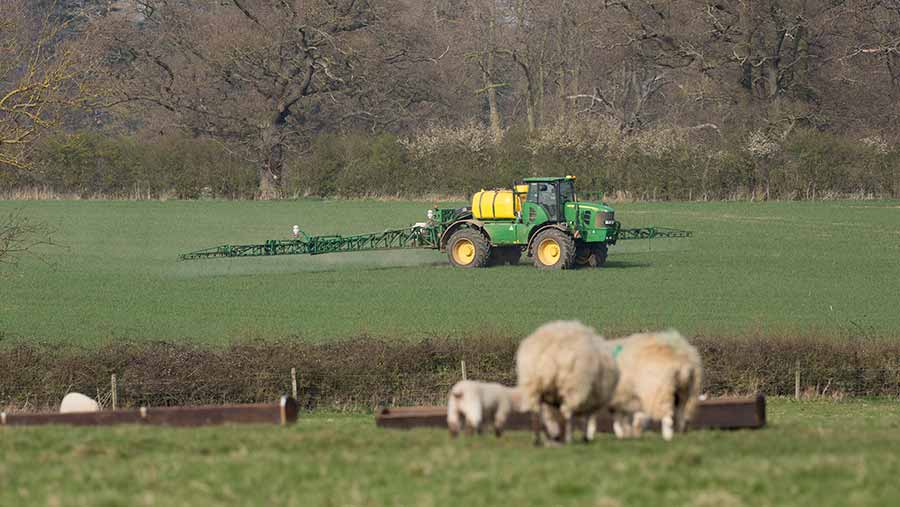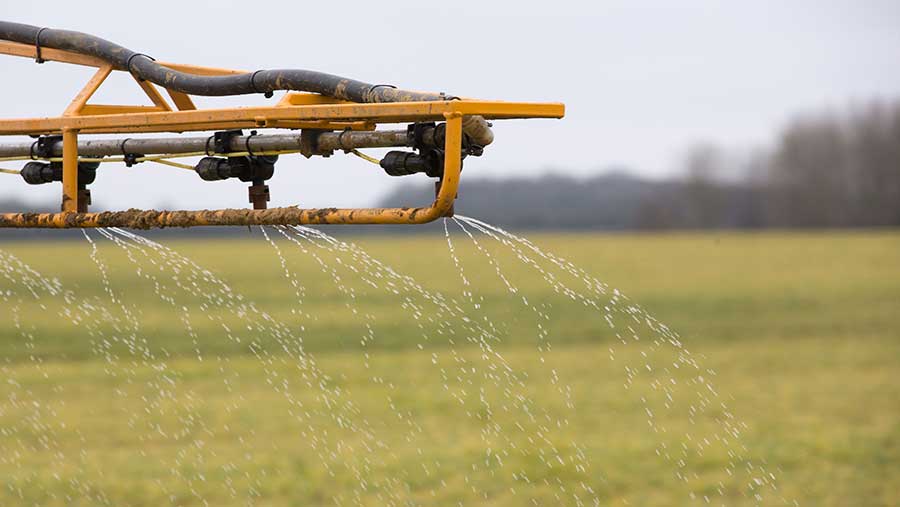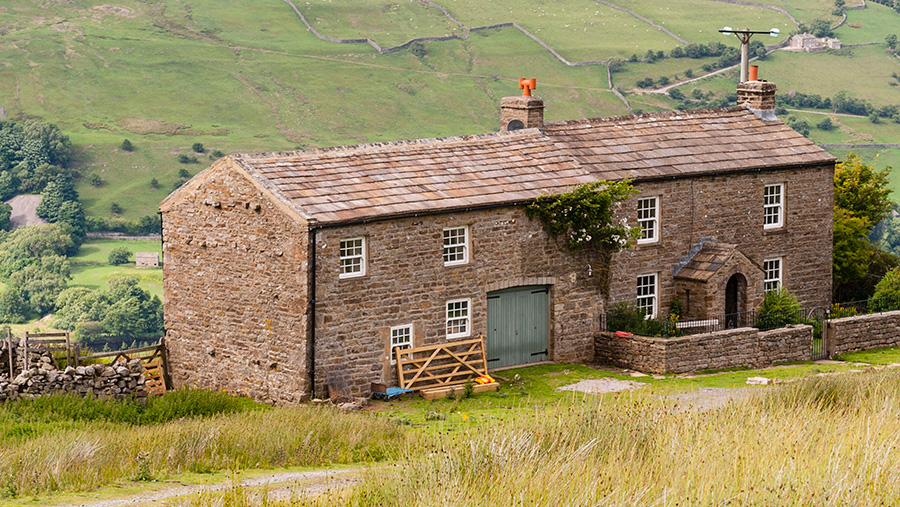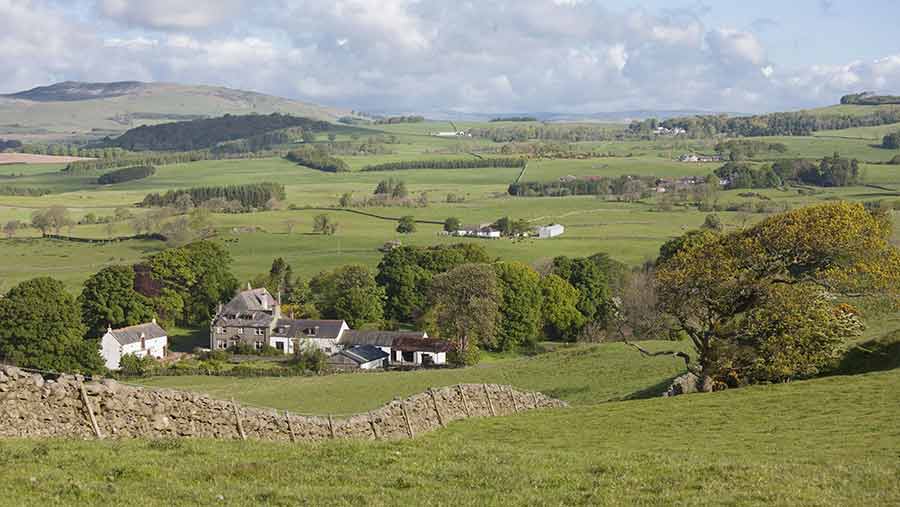2017 checklist: How to prepare and manage your farm business
 © Tim Scrivener
© Tim Scrivener Last year was certainly full of change and 2017 will be no different.
Formal Brexit negotiations are expected to start, the EU faces political upheaval and who knows what might happen to the global economy, commodity prices and currencies with Donald Trump in the White House?
Farmers will continue to face the challenges and opportunities of acting in a global marketplace, as well as dealing with the more mundane – but just as important – legal, tax and asset planning issues.
So what can you do to make the best of your farm business in 2017? We asked the experts:
Plan for volatility
Adrian Matthews, director of food and farming, Savills
Price volatility will continue to reverberate well into 2017; the timing of Brexit, trade agreements, the strength of sterling and future support are all still unknown.
Every business should understand and quantify their profit, capital and cash requirements and identify what effect the changes might have on them.
Look at the various scenarios and ask yourself the following questions: Will there be sufficient income to cover existing and future cash needs? What can be done to mitigate the effects? What are the current business improvements? Are assets not contributing? Should you do a barn conversion or invest in renewables?
Develop a business plan which sets out goals, cash requirements and builds a strategy to achieve it.
Brexit-proof tenancy agreements
Duncan Sigournay, head of agriculture, Thrings Solicitors
It is easy to think the effect of Brexit is still some way off. However, many tenancy agreements being negotiated now will straddle at least two different payment and regulatory regimes – possibly more if transitional arrangements are put in place.
Serious consideration must be given to whether agreements should include Brexit-related provisions to provide ‘escape routes’ – such as by adding in Brexit-specific break triggers that can be activated if there are significant reductions in the entitlement payments.
Likewise, more reactive rent review provisions could be included to ensure rent reflects the economic reality for the sector at the time.
Get to grips with succession
Julie Robinson, head of agriculture, Roythornes Solicitors
With more and more second (and more) marriages taking place, and with children pursuing careers away from the family farm, questions of fairness and suitability in succession are more acute than in previous generations.
So take the bull by the horns in 2017 and develop a succession plan that takes into account the personalities involved, tax considerations, market opportunities and – last but not least – your own needs.
Carry out an asset audit
Will Gemmill, head of farming, Strutt & Parker
Use a map of the farm to reassess all of your buildings, farmland and other capital assets.
Determine whether they really need to be used in the farming business activities or could be consolidated to provide better financial benefit from alternative uses.
Look at possible natural capital opportunities you might have as well, such as storing water on flood plains or managing water supplies for the Environment Agency or local councils.

© Tim Scrivener
Benchmark input prices
Will Gemmill, head of farming, Strutt & Parker
Review the prices you have been paying for all of your inputs over the past 12 months. You can compare prices with a buying group or benchmark with other competitive sources.
Ask yourself whether you could be buying more effectively, for example, purchasing your agrochemicals on a non-serviced basis.
Consider joint ventures
Gary Markham, director of farms and estates, Churchgate Accountants
Many more farming businesses should be considering joint ventures – for example, we have developed a structure that is a combination of a machinery syndicate and a share farming agreement.
It provides economies of scale, develops business skills, allows managed and controlled succession
Update wills and partnership agreements
Gary Markham, director of farms and estates, Churchgate Accountants
Too many farming families have not updated their wills or partnership agreements. These two documents need to be prepared together because they interact.
This is very important because of the value of assets and the increased interest shown by successors and their non-farming siblings – and their spouses.
Calculate profit v subsidies
Iain McVicar, head of agricultural group, Albert Goodman LLP
Farm businesses should compare their subsidies with their business profit. This will give an indication of the risk they face in the next five or so years, when Britain leaves Europe.
If your farm subsidies are greater than the profit, then the business is at high risk of problems post-Brexit. If your farm subsidies are less than one-quarter of profits, then the business is low risk. Where do you sit?
Beware of changes to lettings’ relief
Sam Kirkham, partner, Albert Goodman LLP
From 6 April, tax relief on borrowings against residential letting income will reduce. This will have implications for farmers, trusts and estates letting cottages.
For example, a higher-rate taxpayer with rental income of £15,000 and interest of £5,000 now receives tax relief of £2,000, but from 2017-18 it will be £1,750.
By 2020-21 the tax relief will halve to £1,000. The rules may also bring existing basic-rate taxpayers into higher rates of tax.

© Photofusion/REX/Shutterstock
Take care with cottage lettings
Sarah Whitehurst, associate, Roythornes Solicitors
To avoid getting caught out when you try to bring residential tenancies to an end, inspect your let properties, act promptly where there is disrepair and keep a clear record of works carried out.
We are seeing quite a few instances of delays where landlords seek to regain possession of farm properties, but have failed to act when tenants have complained about items that need fixing.
Residential tenancy law has changed again over the past year; make it a new year’s resolution to keep on top of the changes.
Maintain good record-keeping
Clive Phillips, head of land and rural business, Brodies LLP
Keep your partnership agreements and record-keeping under review and ensure structures are still fit for purpose as your business develops.
Partnerships have many advantages, but they throw up some of the most bitter and expensive disputes.
It is the informality and flexibility of them, with inadequate record-keeping and decision-making, that lead many farm partnerships into difficulty.

© Design Pics Inc/Rex/Shutterstock
Register your Scottish land
Clive Phillips, head of land and rural business, Brodies LLP
A new land registration system is now in force in Scotland with the objective of registering all land by 2020. Sales, gifts, succession, long leases and securities will all trigger compulsory first registration.
The new system replaces old title deeds and a mapping and legal process is required to register.
Landowners have the option of voluntary first registration. There are a number of advantages of doing so, including getting on the register in advance of competing interests.
The Registers of Scotland is offering a 25% discount on registration dues at the moment.
Take advice sooner rather than later
Peter Griffiths, tax director, Hazlewoods LLP
Farming businesses and families can often find difficulties arise because relevant advice was not taken at an early enough stage.
This can be true in succession planning, partnership changes, changes in the business structure and the sale and/or investment in assets.
Often a seemingly small change in the structure of planning can have a significant effect on the tax position and liabilities.
So make 2017 the year you get advice on that issue that’s been building, before it turns into a full-blown headache.
Make yourself aware of infrastructure proposals
Andrew Jenkinson, partner, Robinson and Hall LLP
The Autumn Statement at the end of 2016 revealed the chancellor’s intentions to spend more on infrastructure with a National Productivity Investment Fund investing £1.1bn in the English transport network and £220m on roads.
While some of this investment has previously been announced, schemes are planned throughout the country and you should check if any may be near you.
Compensation for land lost may provide a cash injection, but depending on the size of the project, the effect on farming operations can be restrictive at best, with long timescales. Use the opportunity to put forward amendments of potential routes now.
Review your finances
Andrew Jenkinson, partner, Robinson and Hall LLP
With many farmers having to increase their overdraft facility, thought should be given to placing part of it on a longer-term loan so you have certainty – it may also work out cheaper over the length of the loan.
In addition, with interest rates at historically low levels, consider the advantages and disadvantages between a variable-rate and a fixed-rate loan.
